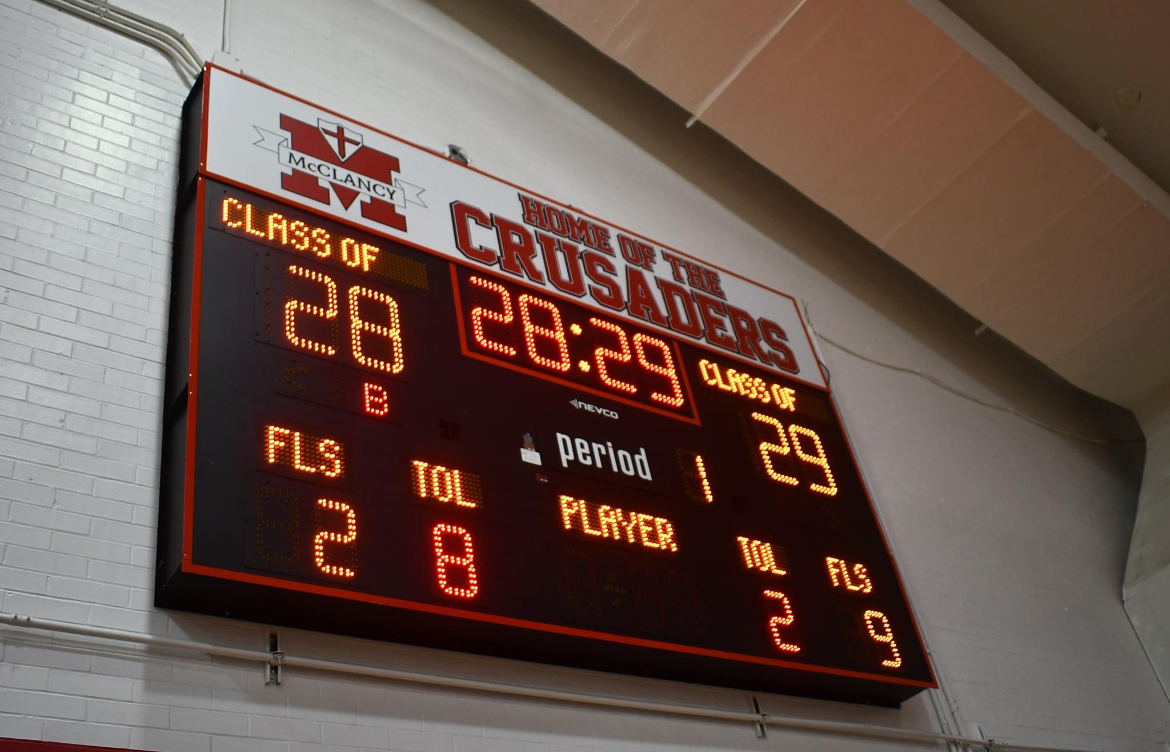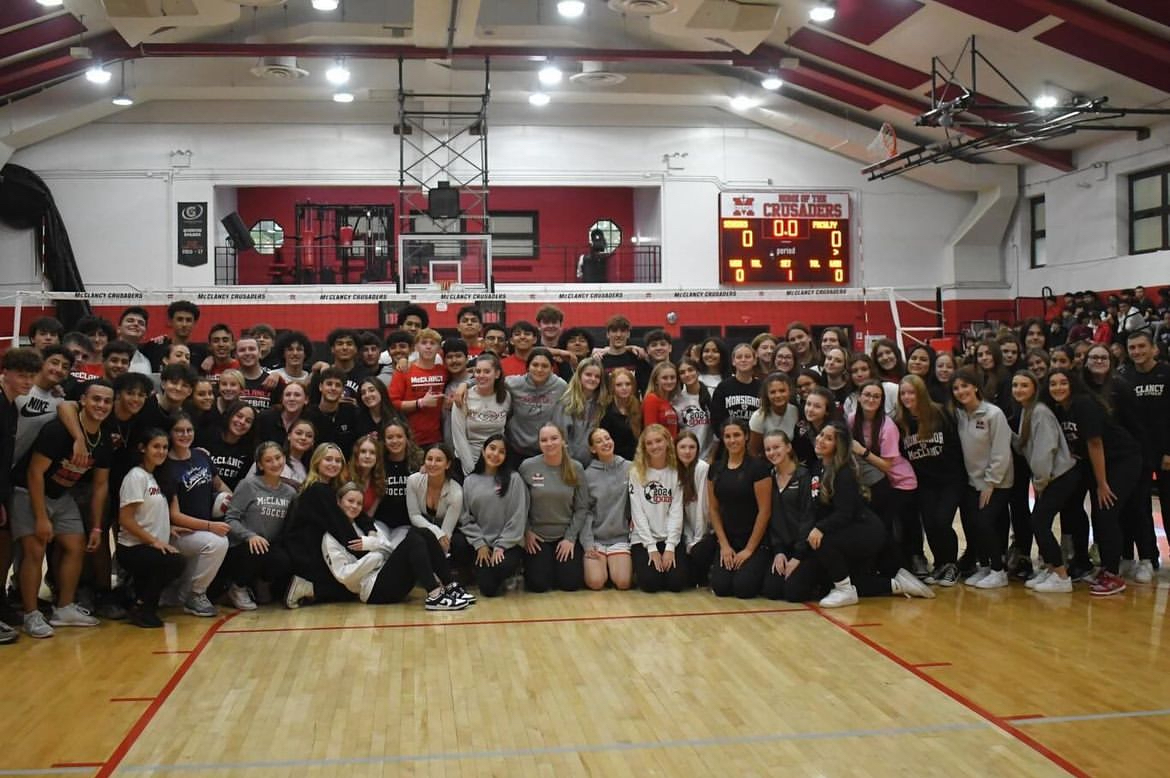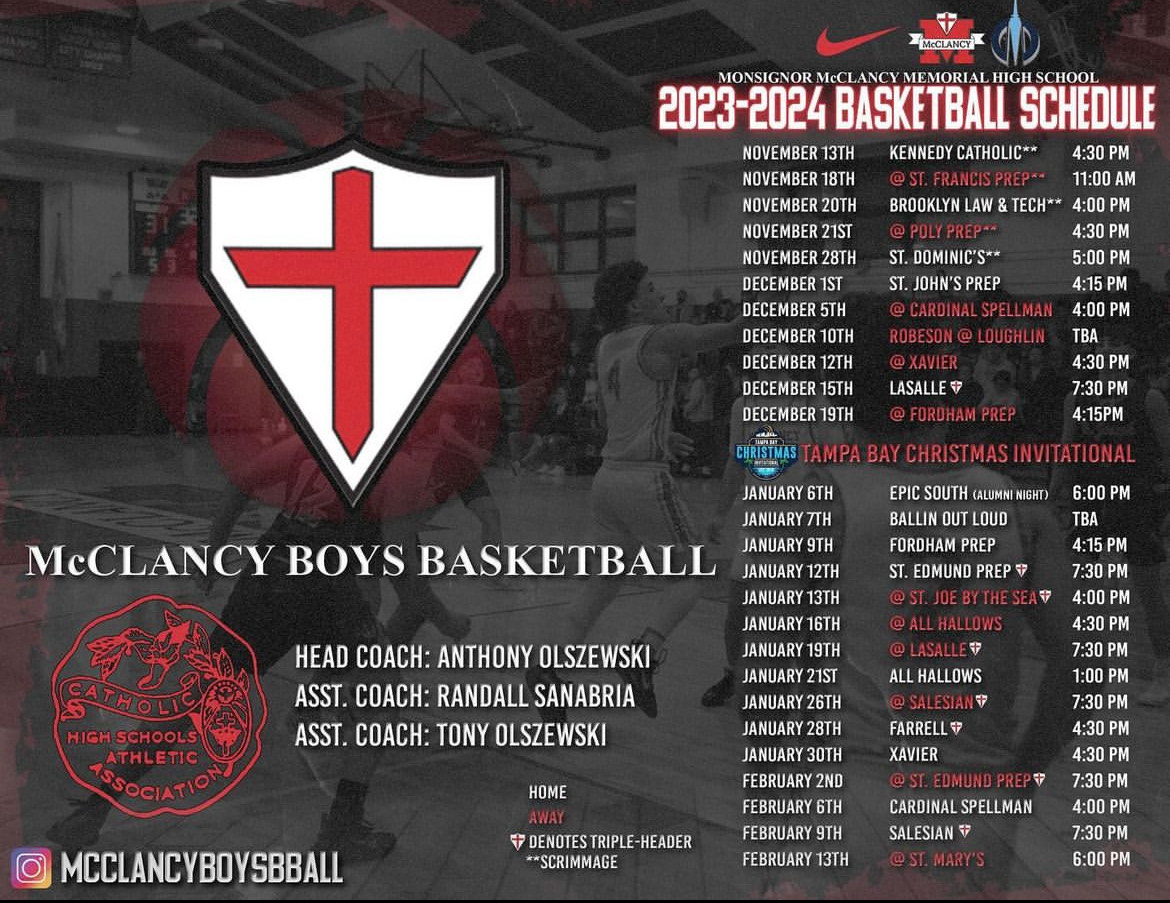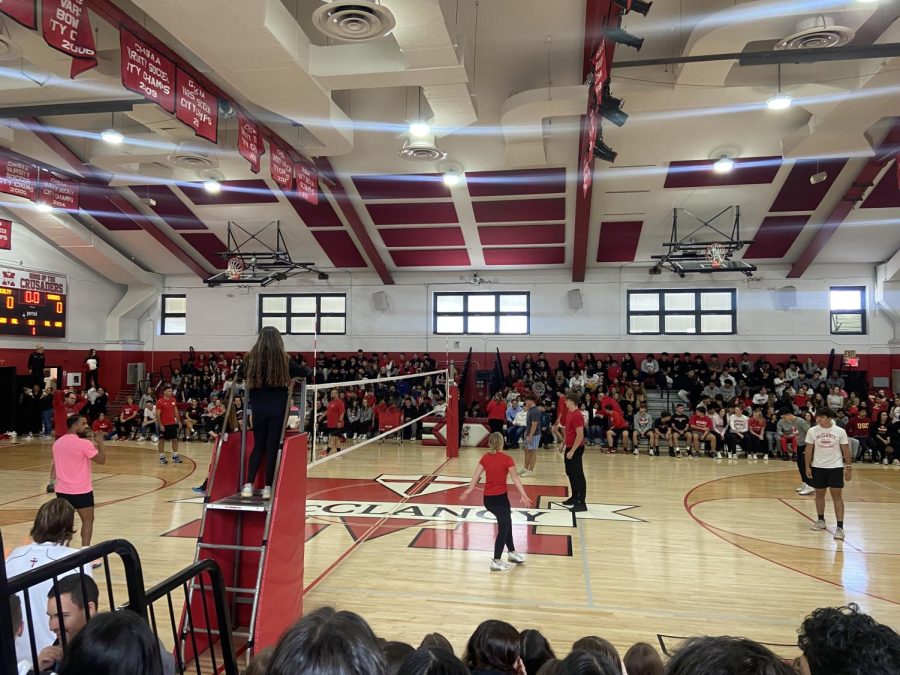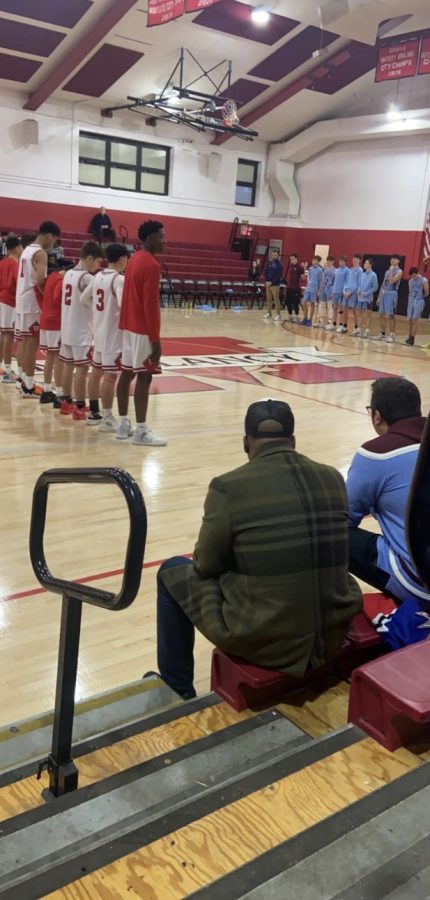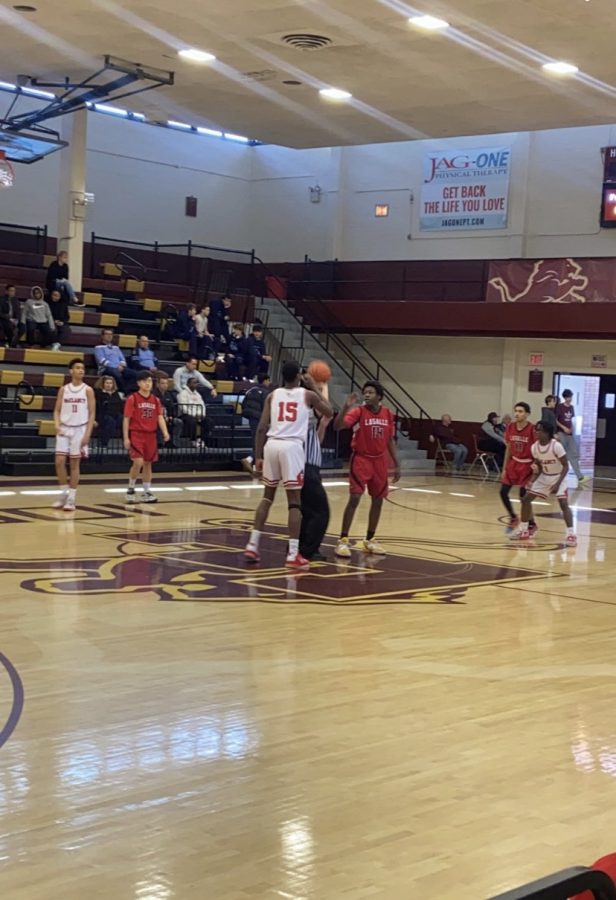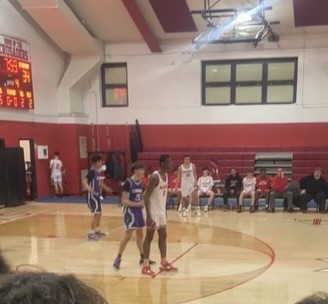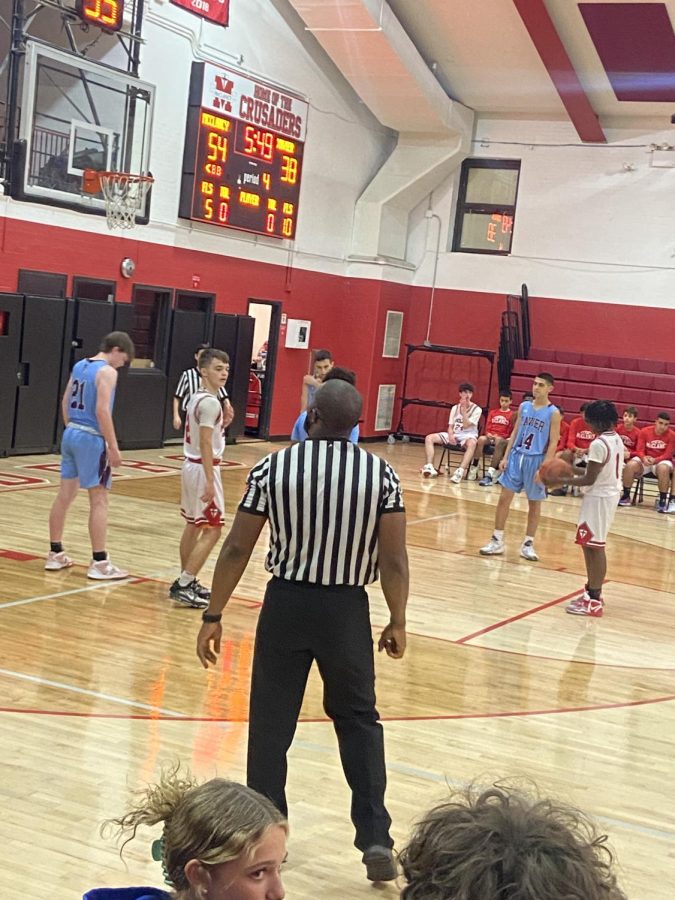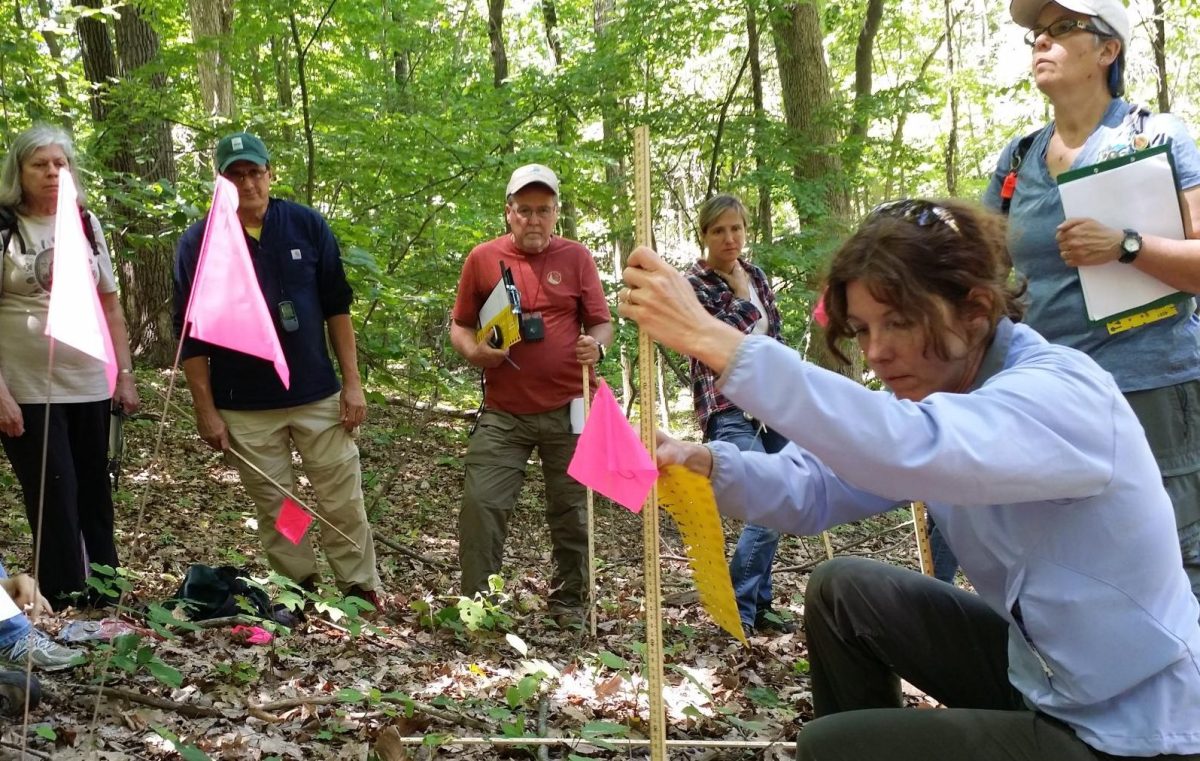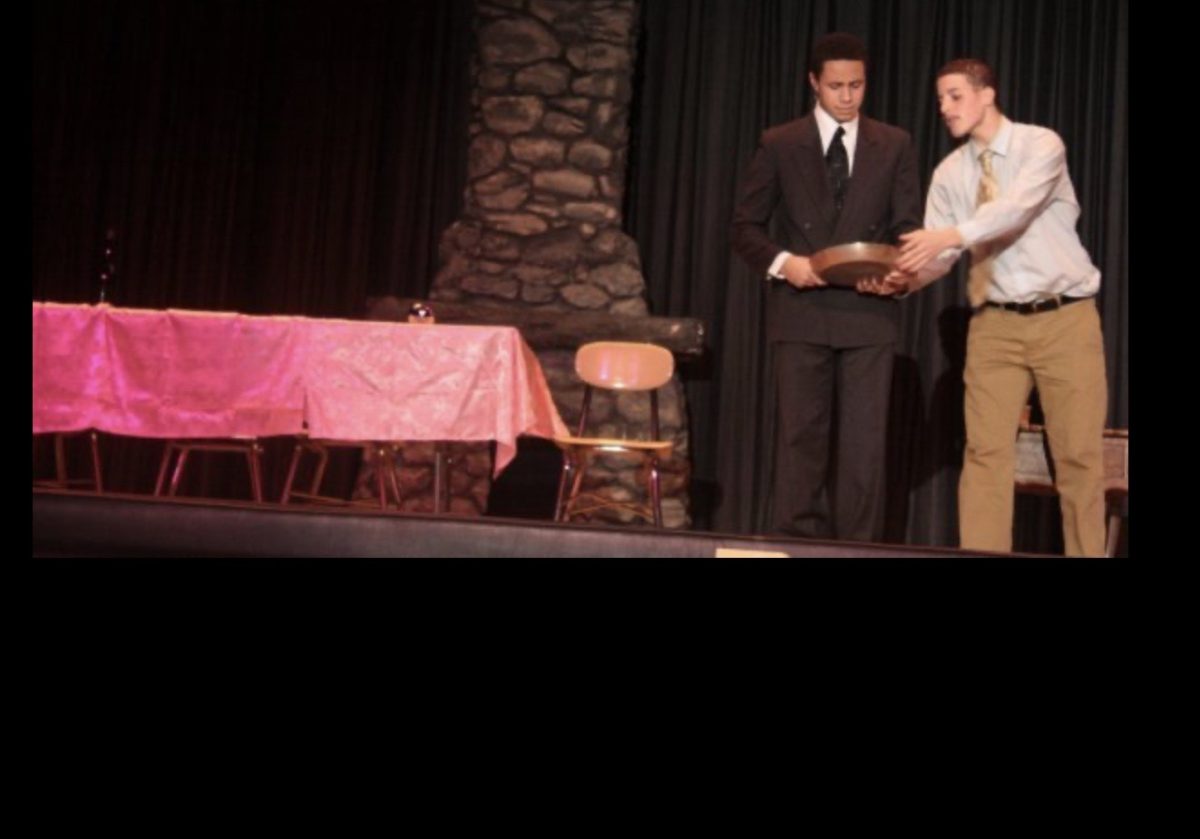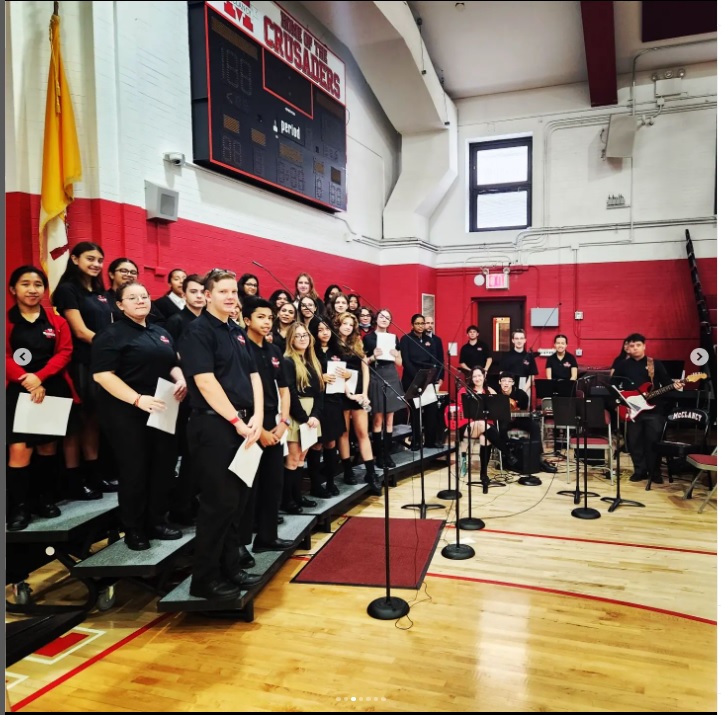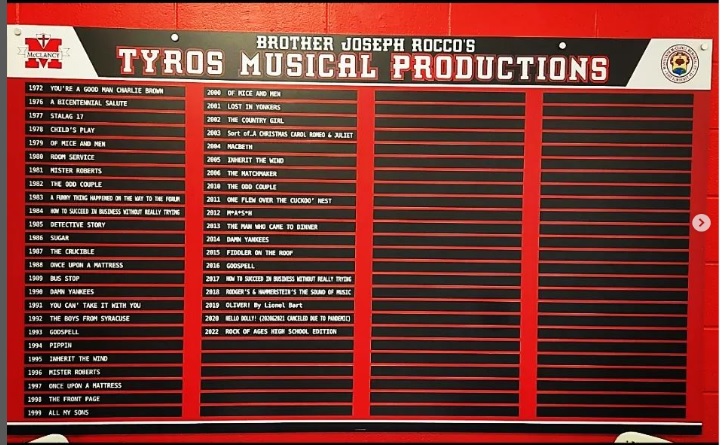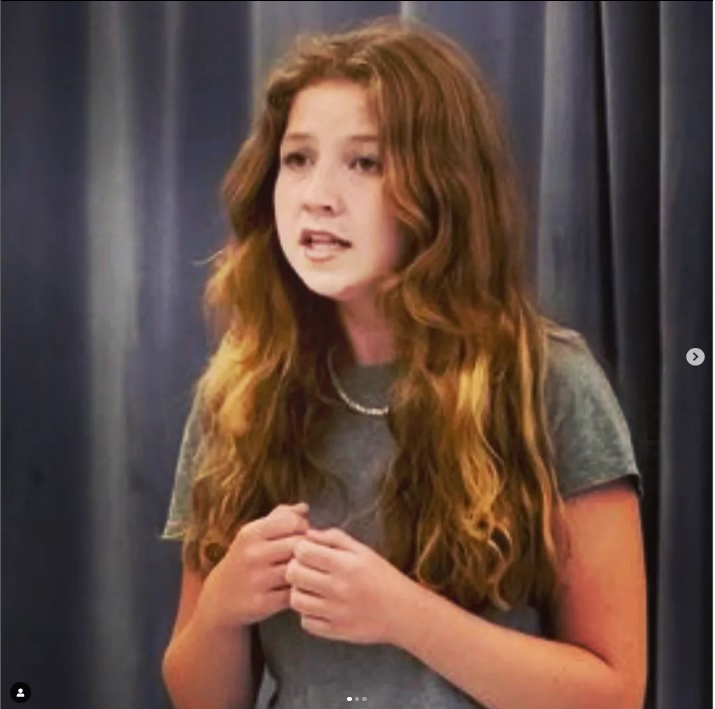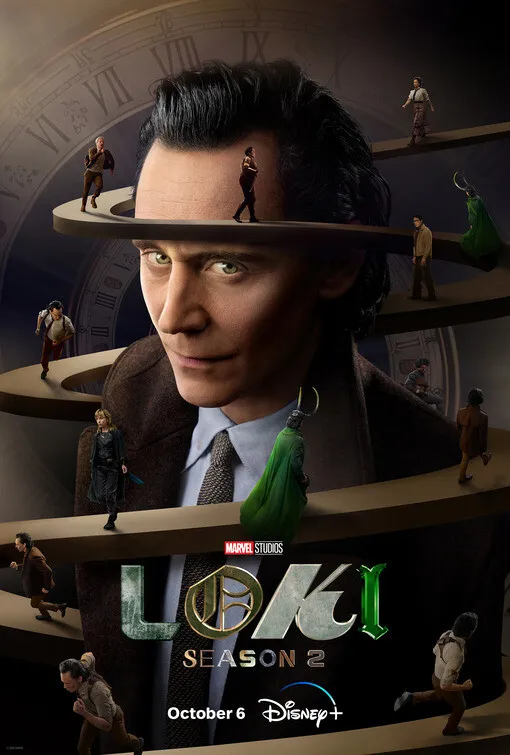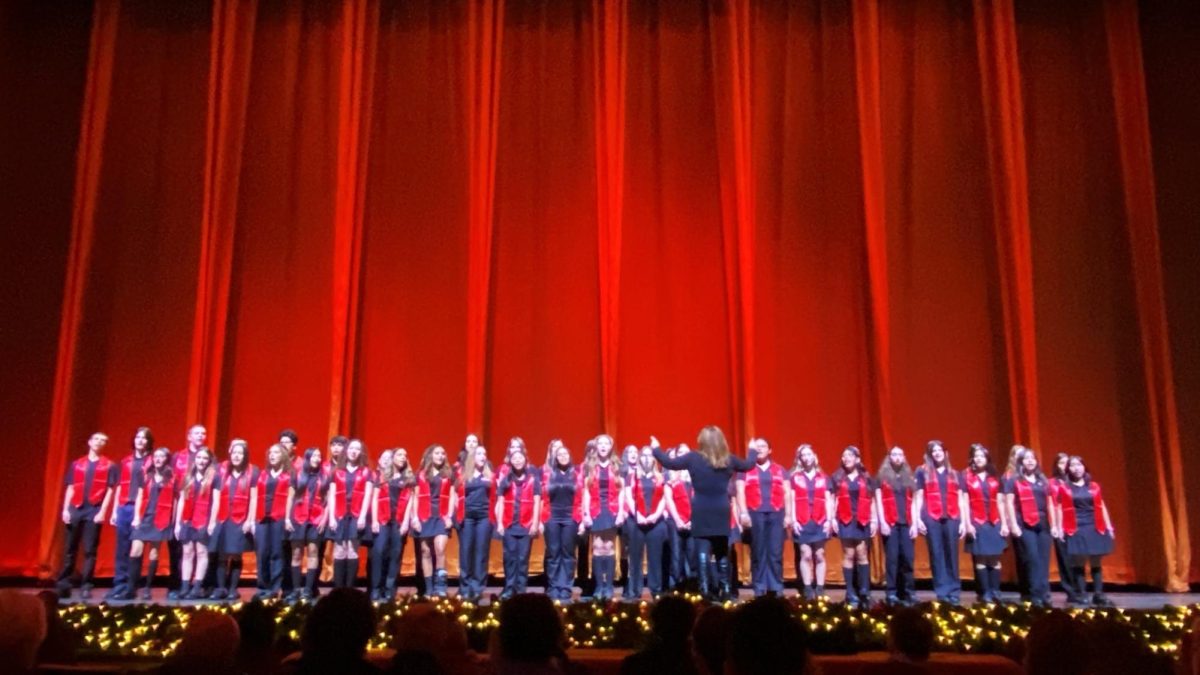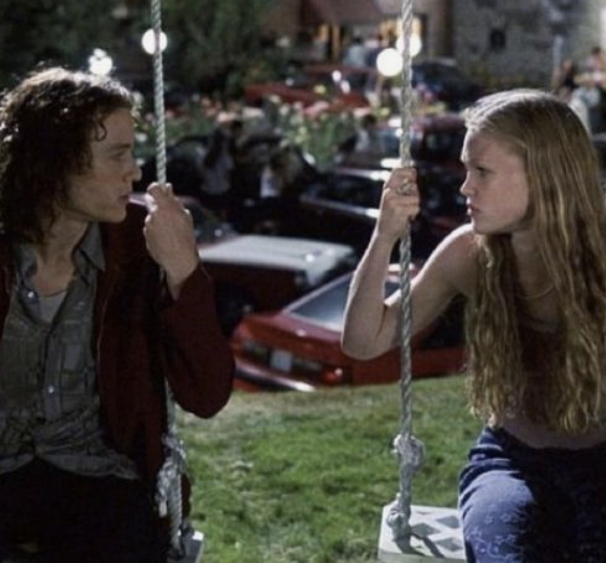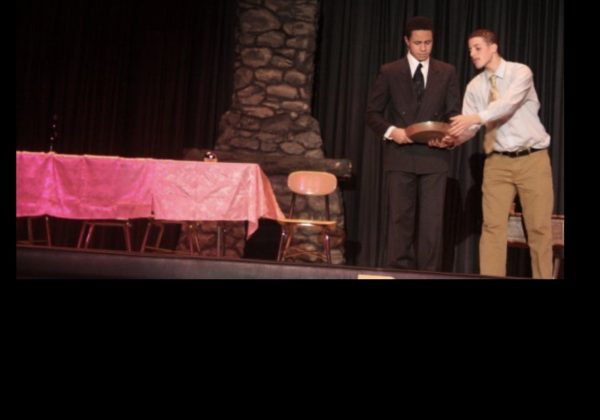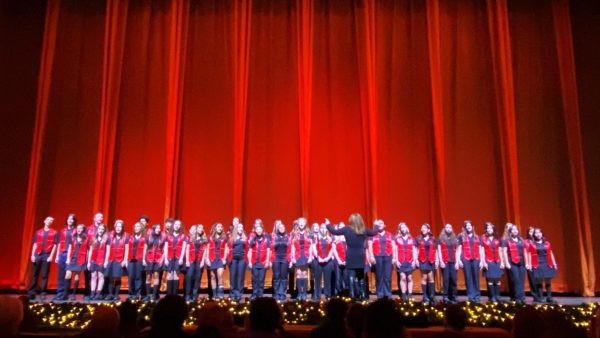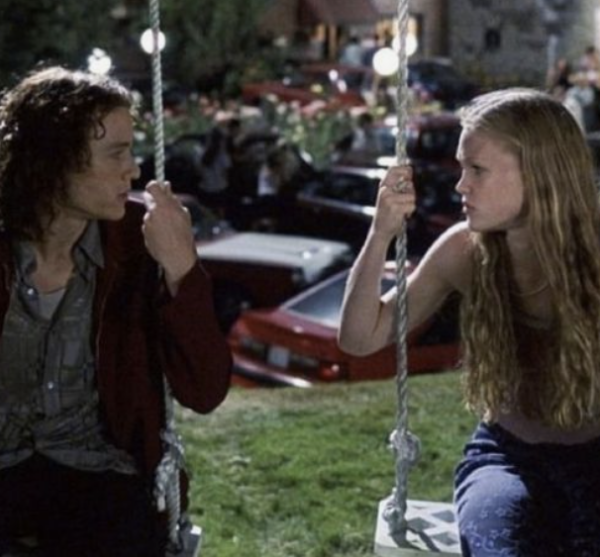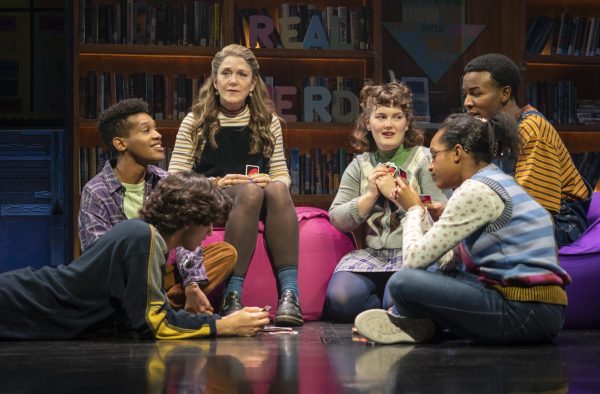A Look Backstage At the Metropolitan Opera

January 12, 2023
On Wednesday, December 14, 2022, the Tyros club (along with a few other clubs) attended a dress rehearsal for the Metropolitan Opera’s production of The Magic Flute. The performance was breathtaking, the singers were incredible, and the stage work was phenomenal. It was indeed an unforgettable experience. After the show, a few of us were lucky enough to get to go backstage and try to take a look behind the curtain, at what it takes to produce such a fabulous and high-end production.
Our tour guide, Kevin Cavanagh, was no stranger to Monsignor McClancy. He helps with our sound in our performances, setting up microphones and making sure everyone can hear our wonderful performers’ voices throughout our auditorium. At the Metropolitan Opera, he works as a sound engineer in several productions. Being a sound engineer for such a big-name company has its perks, but, according to Mr. Cavanagh, sometimes he forgets where he works. He says, “When you work here long enough it just becomes a job; I need people like you to remind me that this is a special place.” Mr. Cavangh took us to the stage, where most of the magic happens. He took us to where he sat throughout the show and showed us all the different kinds of machinery that it takes to make the performance come to life.
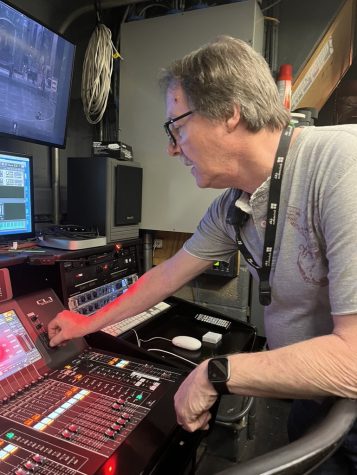
Though, nothing is easy; challenges occur even in fancy opera houses. Mr. Cavangh speaks on some of the challenges he faces and the precautions he takes for them. He said, “One of the biggest challenges we do here, on the rare occasion that we do have to amplify someone because they can’t be heard well enough in the audience due to the set design, we can’t allow the audience to see the microphone and speakers.” He then gives prompts to the singers because, it turns out, generally, the singers don’t wear microphones. He says being careful about the speakers is really for the performers more than the audience. If the audience sees speakers, they’ll think everyone is wearing a microphone, which is unfair to those who work so hard and project their voices. Another topic he touches on challenge-wise is a computer system shutting down or crashing during the middle of a production. They take precautions to avoid any catastrophes, like missing a sound cue. Every time Mr. Cavangh sets off a cue, he fires two computers simultaneously rather than just one. If one crashes, the other is lined up and ready to pick up where the other one left off. It’s a very rare occasion that anything goes wrong, but, if something did, the amazing crew behind the stage would be ready.
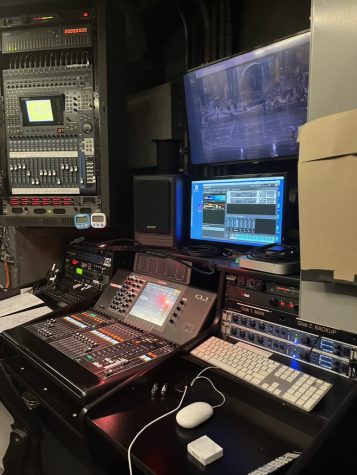
Looking backstage, we also got to see a lot of other cool things and people that make the show so magical. We saw the stage manager’s desk. The stage manager is so crucial to the show that it would probably be chaos without him. He hands cues and makes sure everything backstage is in its best shape. We also got to see all the people who build the sets and get them ready for the next show. They are the backbone of every production.
As I concluded the interview with Mr. Cavangh, I asked him what his favorite part of working there was, and he responded “the fact that it’s so varied.” Mr. Cavangh is truly a brilliant guy. He works with sound for parties and special effects, helps with sound effects in the auditorium, maintains all the wiring that’s distributing audio and video through the whole building, and installs and repairs most of the infrastructure. He does so much backstage to make the artists’ ideas come to life.
So, the next time you find yourself watching any production, take a moment to remember and thank the hard-working people backstage who are the secret heroes of every show, just like Mr. Cavangh.



